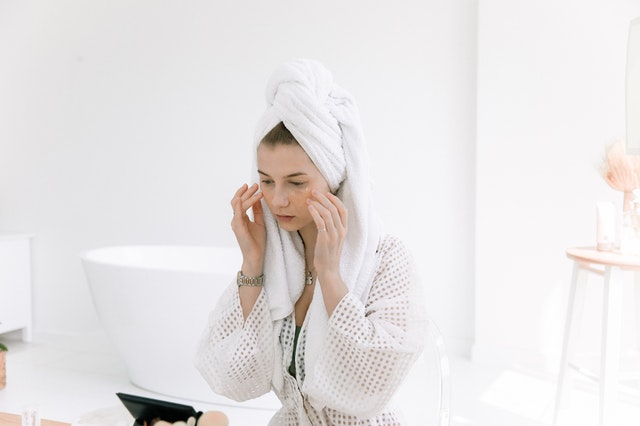Creating a Sleep-Friendly Environment for a Good Night’s Sleep

Quality sleep is essential for our physical and mental well-being. It allows our bodies to rest, repair, and recharge for the day ahead. However, achieving a good night’s sleep can be elusive for many people. One effective way to improve your sleep quality is by creating a sleep-friendly environment in your bedroom.
In this blog post, we’ll explore key strategies to transform your bedroom into a sanctuary for restful slumber.
Invest in a comfortable mattress and bedding
The foundation of a good night’s sleep starts with your mattress and bedding. A comfortable mattress that suits your body’s needs is essential. The right level of firmness and material (memory foam, innerspring, latex, etc.) can make a significant difference in your sleep quality. Additionally, high-quality sheets, pillows, and blankets contribute to a cozy and inviting sleep environment.
Darken the room
Light plays a crucial role in regulating our circadian rhythm, the body’s internal clock that tells us when to sleep and wake up. To create a sleep-conducive environment, invest in blackout curtains or blinds that can effectively block out external light sources such as streetlights or the morning sun. A dark room sends signals to your brain that it’s time to rest.
Maintain a comfortable temperature
The temperature of your bedroom can greatly impact your sleep quality. Most people find that a cooler room, typically between 60-67°F (15-20°C), promotes better sleep. Experiment with your thermostat to find the temperature that feels most comfortable for you. Consider using breathable, natural-fiber bedding to help regulate your body temperature.
Eliminate noise
External noises like traffic, construction, or loud neighbors can disrupt your sleep. To counteract this, use earplugs or invest in a white noise machine. White noise can help mask disruptive sounds and create a consistent ambient sound that is conducive to sleep.
Invest in an air purification system
If you’re struggling to get a good night’s rest, investing in an air purification system might just be the solution you need. Poor air quality can lead to issues like allergies, asthma, and even snoring, all of which can prevent you from sleeping soundly.
Luckily, with the right air purifier, you can eliminate pollutants like dust, pollen, and dander, creating a healthier, sleep-friendly environment. When searching for an air purifier in New Hampshire, be sure to do your research and find a model that meets your specific needs.
Declutter your space
A cluttered bedroom can contribute to feelings of stress and anxiety, making it challenging to relax and fall asleep. Take some time to declutter your space and create a serene atmosphere. Organize your belongings, and consider implementing storage solutions to keep your bedroom tidy and calming.
Limit electronic devices
The blue light emitted by smartphones, tablets, and TVs can interfere with your body’s production of melatonin, a hormone that regulates sleep-wake cycles. It’s essential to avoid screens at least an hour before bedtime. Instead, engage in relaxing activities like reading a book or practicing deep-breathing exercises to prepare your mind and body for sleep.
Create a bedtime routine
Establishing a consistent pre-sleep routine can signal to your body that it’s time to wind down. Your routine might include activities such as gentle stretching, taking a warm bath, or sipping a cup of caffeine-free herbal tea. These rituals can help you relax and prepare for a restful night’s sleep.
Choose relaxing colors
The color scheme in your bedroom can have a subtle but significant impact on your sleep environment. Consider painting your walls in calming and soothing colors like soft blues, muted greens, or gentle neutrals. These shades can evoke a sense of tranquility and relaxation, creating a peaceful atmosphere in your bedroom.
Invest in quality pillows
Pillows play a crucial role in supporting your head and neck during sleep. Choose pillows that align your spine properly and provide the right level of comfort. The right pillows can prevent discomfort and ensure you wake up feeling refreshed and free from neck pain or stiffness.
Minimize distractions
Your bedroom should primarily be associated with sleep and intimacy. To create a sleep-friendly environment, remove any sources of distraction from your bedroom. This includes work-related materials, exercise equipment, or anything else that might remind you of tasks or activities other than sleep.
Conclusion
Creating a sleep-friendly environment is essential for achieving a good night’s sleep. Your bedroom should be a sanctuary dedicated to rest and relaxation. By investing in a comfortable mattress, darkening the room, maintaining a comfortable temperature, and incorporating these other tips, you can transform your bedroom into a haven for restful slumber. Quality sleep is within your reach, and with these strategies, you can start enjoying the benefits of a well-rested body and mind. Sweet dreams!


